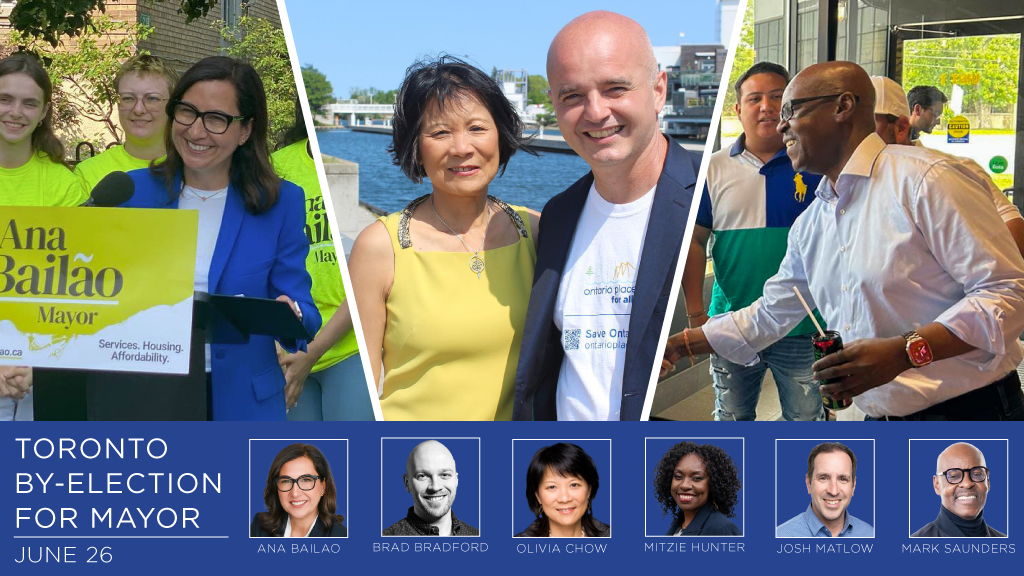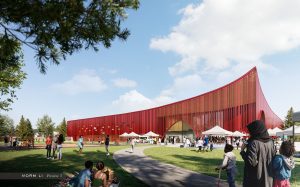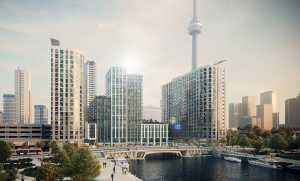Perceived Toronto mayoral byelection frontrunner Oliva Chow appears to be benefiting from a combination of factors including an apparent public willingness to embrace an activist agenda as voters prepare to vote in a new mayor next Monday (June 26).
The former NDP MP and ex-city councillor has doubled her closest challengers in almost all polls in the past month and it’s attributable to her name recognition along with her pledges on housing, transit and taxes, suggests Myer Siemiatycki, professor emeritus with the Department of Politics and Public Administration at Toronto Metropolitan University.
Chow has been the most forthright in committing herself to the need for a property tax increase higher than the rate of inflation if the city is to make a dent on infrastructure and service backlogs, Siemiatycki said.
“You wrap it all up and it’s her record in past public office, it’s her position on specific issues, housing, transit, and it’s capturing the moment that Toronto needs to be more proactive, addressing various issues and that has a revenue requirement to it,” he said.
“Torontonians have come around to recognizing that.”
The campaign featured significant discussion of the city’s housing problems and that stemmed from both the dimensions of the problem and the number of candidates in the field, Siemiatycki said.
“One of the advantages of a big field is that we have had a wide range of diagnoses and prescriptions on the housing file. I don’t think there’s a shortage of options to choose from. I think Torontonians are homing in on which approach to the housing problem and which candidate is most likely to be able to address it.”
A continuum of approaches appeared, said Siemiatycki, with contenders such as Mark Saunders, Anthony Furey and Brad Bradford saying the role of government is to create an environment conducive to private sector investment and home construction, and others such as Chow, Mitzie Hunter and Josh Matlow suggesting the private sector alone is not going to solve the problem and that a stronger role for municipal government is needed.
“It does seem as if Olivia Chow has captured the mood of Torontonians,” said Siemiatycki.
Three polls were published regularly during the campaign with Chow ranking close to city councillor Matlow in popularity in the early days but their paths soon diverged. Chow has consistently polled above 30 per cent since early May while Matlow is now well under 15 per cent. Ex-police chief Saunders dropped through the early days of the campaign before settling near 15 per cent, while former councillor Ana Bailao, championed by the Carpenters’ Union, is close behind.
Coun. Bradford polled in the single digits in polls and is generally considered in seventh place, while Hunter, the former provincial Liberal cabinet minister, never managed any traction.
The candidate with the most momentum in recent weeks was Furey, the former Toronto Sun columnist, who rose from obscurity to poll above 10 per cent in recent days.
Bailao picked up the endorsement of the Toronto Star editorial board in the past week, with the Star citing her experience on the housing file.
Former mayor John Tory also endorsed Bailao on June 21.
During June all seven contenders beefed up their campaign platforms with new or expanded policy pledges.
Chow was the frequent target of the others in debates and campaign announcements, with Saunders solely focused on Chow on the news page of his website with such tags as “Stop Chow to stop bike lanes on Bloor Street West” and “Stop Chow, stop TTC crime.”
Saunders recently received the endorsement of Ontario Premier Doug Ford, who acknowledged he had a lawn sign supporting Saunders.
Saunders has also joined Furey in criticizing the rise of bike lanes.
“Bike lanes have gone from a thoughtful idea to a political statement,” said Saunders, “with Olivia Chow being the bike-lane ringleader.”
Among other campaign developments this month:
On June 11 Chow received the endorsement of Coun. Alejandra Bravo and issued a statement outlining her plan to fight homelessness and build affordable housing. Chow reiterated her pledge to build 25,000 units of purpose-built, rent-controlled housing on city land with the City of Toronto as the developer.
“I’ll invest in programs that help prevent homelessness before it happens, and make sure people experiencing homelessness can secure permanent housing,” said Chow.
On June 16 Bradford issued a statement criticizing Furey’s description of a proposed city supportive housing project at 175 Cummer Ave. as a “homeless facility that will also be used as a drug injection site.”
“The fury being stoked by some to oppose supportive housing projects is wrong,” said Bradford. “As mayor, I will build supportive housing so homeless people can get off the streets and into homes.”
On June 13 Matlow announced he would make it more attractive for developers to build new rental apartments by cutting property taxes in half for new purpose-built rental apartments if builders ensure five per cent of the new units in each building will be offered at below-market rates.
Furey recently issued a statement with a set of policies designed to “get Toronto on the move again.” He plans to launch a project to consider reallocating the dedicated GO Bus lanes on the Don Valley Parkway to regular commuters.
“Drivers are tired of sitting in traffic on the DVP while there is an empty lane next to them,” the statement said.
Hunter, meanwhile, expanded on her plan to revive the TTC, saying she was the “only mayoral candidate with a comprehensive, fully costed and funded plan to end the TTC ‘death spiral.’”
Follow the author on Twitter @DonWall_DCN











Recent Comments
comments for this post are closed